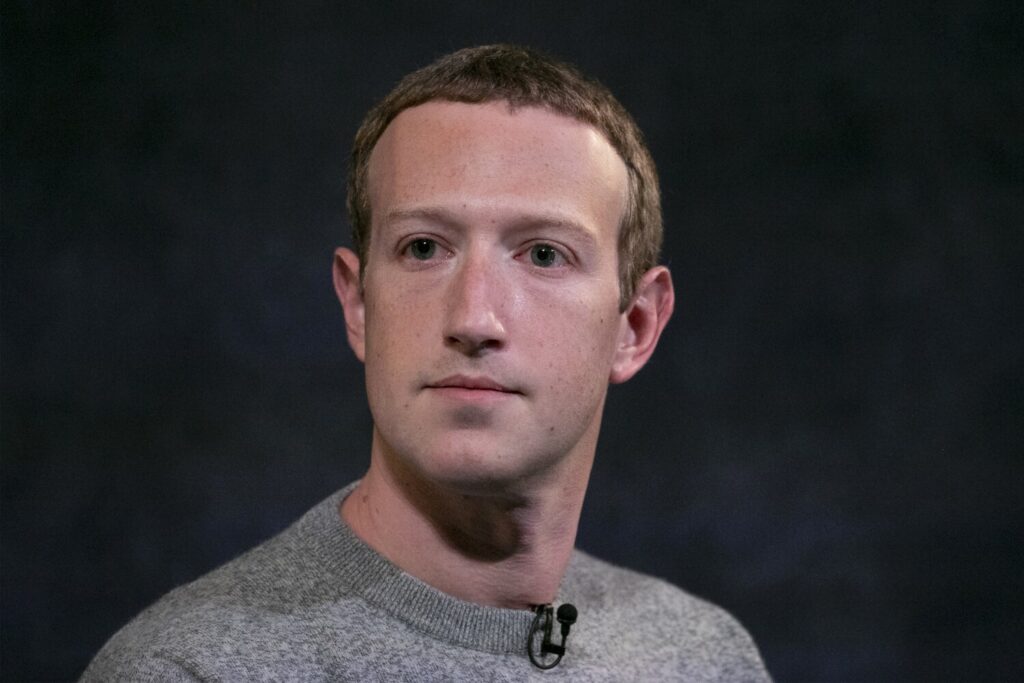Aging tech products often suffer from what’s known as feature creep: excessive complexity caused by the accretion of bells and whistles over the years.
Log into Facebook (launched in 2004) or Instagram (launched in 2010) these days and every available pixel seems to offer up a different feature, function, tool or interface, many of them cloned from newer, buzzier competitors.
This everything-to-everyone approach might leave one with the impression that Meta Platforms — the recently rebranded umbrella company that oversees Facebook, Instagram and WhatsApp — lacks a clear vision for its flagship apps.
But on an earnings call with investors Wednesday afternoon, Chief Executive Mark Zuckerberg outlined a straightforward mission statement for Facebook and Instagram: They’re both TikTok now.
Not that he said so outright. But the trajectory he mapped out for both apps, toward an experience dominated by algorithm-suggested video content, is one that will bring them more in line with the ByteDance-owned video app that has rapidly become their fiercest competitor — even if their users would explicitly prefer otherwise.
TikTok nipping at its heels isn’t the only reason the company reported its first-ever year-over-year quarterly revenue decline in the earnings report accompanying Zuckerberg’s call. An Apple privacy feature introduced last year that makes it harder to monetize and the ongoing war in Ukraine have combined to put the firm in a tough spot.
But it was Reels, Instagram’s TikTok-knockoff feature, and other TikTok-inspired pivots that Zuckerberg emphasized in his call as offering hope for the future.
“One of the main transformations in our business right now is that social feeds are going from being driven primarily by the people and accounts you follow to increasingly also being driven by AI recommending content that you’ll find interesting from across Facebook or Instagram,” Zuckerberg said. “Reels is one part of this trend that focuses on the growth of short-form video as a content format, but this overall AI trend is much broader and covers all types of content.”
“Right now, about 15% of content in a person’s Facebook feed, and a little more than that of their Instagram feed, is recommended by our AI,” he added. “We expect these numbers to more than double by the end of next year.”
People spent over 30% more time watching Reels in the company’s most recent quarter, Zuckerberg said, and the company has now “crossed a $1-billion annual revenue run rate for Reels ads.”
Even before Zuckerberg doubled down on it Wednesday, the increasing TikTokification of Instagram was stirring users’ ire.
“Make Instagram Instagram again,” urged one viral post that both Kylie Jenner and Kim Kardashian, two of the platform’s biggest influencers, shared. “Stop trying to be TikTok.”
A Change.org petition demanding the return of chronologically arranged content feeds and a reemphasis on still photography, created by the same Instagrammer who made the viral post, has now amassed more than 200,000 signatures.
In a video addressing backlash to the recent changes, Adam Mosseri, head of the platform, said that although Instagram will continue to support still photography, “more and more of Instagram is going to become video.” Mosseri also framed the introduction of more recommended content into users’ feeds as a way to help smaller content creators find an audience.
It’s not the first time Meta has aped a competitor’s innovation. In 2016, the company sought to fend off a threat from Snapchat by adding disappearing “Stories” to Instagram; it later expanded the feature to Facebook and WhatsApp. And it’s also not the first time the company has tried to orchestrate a top-down pivot to video — a tactic that, in the past, proved disastrous for many publishers.
As it labors to keep pace with TikTok, the company is simultaneously attempting to build a future for itself outside social media feeds. The rebrand as Meta, launched last October, was part of a broader effort by Zuckerberg to shift his firm toward a vague miasma of e-commerce, virtual reality and interactive digital environments dubbed the “metaverse.”
“The metaverse is a massive opportunity for a number of reasons,” Zuckerberg said on the call. “Most importantly, it enables deeper social experiences. … By helping to develop these platforms, we’re going to have the freedom to build these experiences the way that we in the overall industry believe will be best, rather than being limited by the constraints that competitors place on us.”
But even by the company’s own estimates, a mainstream, user-friendly metaverse is years away. In the meantime, it’s stuck with the baggage of being a legacy social media brand — and trying to make money in the process.

